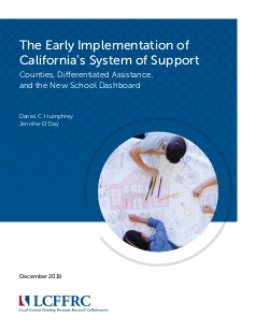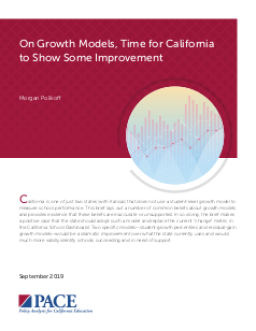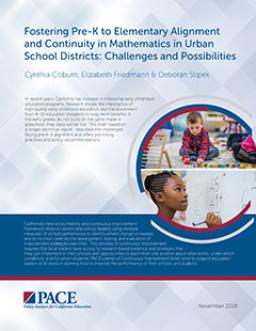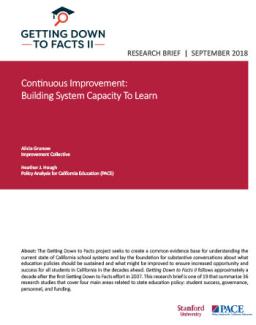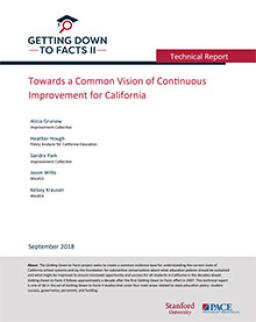Summary
This report examines the early implementation of California's Statewide System of Support, which is designed to empower local educators in determining the best approaches to improvement. While COEs and district officials hold positive views of the system's emphasis on support over compliance, they have concerns about under-resourcing and the effectiveness of the Dashboard measurement tool. The report provides five recommendations to make the System of Support a more comprehensive system aligned with the Local Control Funding Formula.
Summary
Summary
Summary
Continuous improvement in education involves engaging stakeholders in problem-solving to discover, implement, and spread evidence-based changes that work locally to improve student success. California sees it as central to enduring education transformation. It requires an initial significant investment in time and money to make it a reality, but can improve education quality. However, California's data systems are inadequate for helping districts monitor progress, and more training and coaching are needed to build expertise for statewide implementation.
Summary
CA is shifting the responsibility for school improvement to local school districts with County Offices of Education playing a supportive role. The focus is on local leaders driving educational improvement and ensuring quality. Strategic data use is central to the implementation of this policy, with questions remaining about what data is needed, by whom, and for what purpose. This paper provides a framework for how data use for improvement is different from data use for accountability and shares lessons from the CORE Data Collaborative on how to use data for improvement in networked structures.
